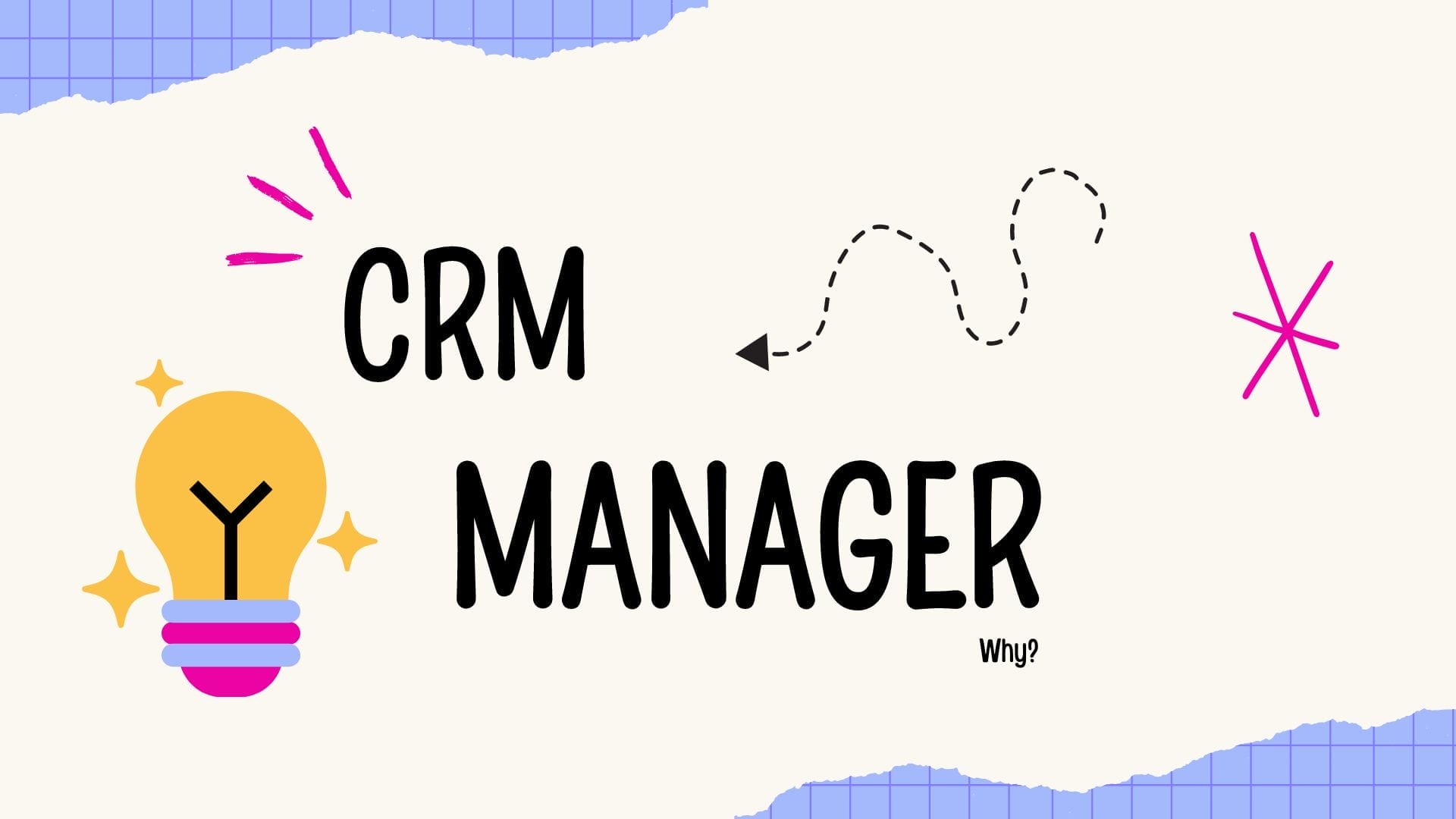In today’s fast-paced and highly competitive business landscape, having an effective customer relationship management (CRM) strategy is essential for achieving sustainable success. A CRM manager plays a critical role in ensuring that businesses establish and maintain strong relationships with their customers.
By leveraging their expertise in database management, customer service, and marketing, CRM managers streamline processes, enhance communication, and drive growth. This article explores the responsibilities, qualities, and benefits of hiring a CRM manager, as well as the factors to consider when making this strategic decision.
From improving customer satisfaction and loyalty to optimizing data-driven insights, a skilled CRM manager can unleash the full potential of a company’s customer relationships. With their expertise, businesses can meet customer expectations and drive sustainable growth.
Key Takeaways
- A CRM manager is responsible for updating accounts and contacts in a CRM system, monitoring customer relation strategies, and recommending strategy improvements.
- Strong customer service skills, proficiency in database management, and attention to detail are important qualities for a CRM manager.
- Hiring a CRM manager can lead to improved customer satisfaction and loyalty, enhanced communication and coordination within the team, and better understanding of customer behavior and preferences.
- Factors to consider when hiring a CRM manager include budget, business growth, unique circumstances of the business, resolving conflicting objectives, and introducing a new CRM system.
Responsibilities and Duties
The responsibilities and duties of a CRM Manager revolve around updating accounts and contacts in a CRM system and monitoring customer relation strategies. A key duty of the CRM Manager is to ensure that accurate and up-to-date information is maintained in the CRM system, including account details and contact information. This is crucial for effective customer relationship management and enables the organization to make informed decisions based on reliable data.
Additionally, the CRM Manager plays a vital role in monitoring and analyzing key metrics to assess the success of customer relation strategies. By evaluating metrics such as customer satisfaction, retention rates, and sales growth, the CRM Manager can identify areas for improvement and recommend strategy enhancements.
Furthermore, the CRM Manager is responsible for the importance of training, ensuring that employees are trained on the proper use of the CRM system and are equipped with the necessary skills to effectively manage customer relationships.
Qualities and Skills
A CRM Manager must possess a range of qualities and skills to effectively optimize customer relations and drive business success.
Leadership abilities are crucial in this role, as the CRM Manager will be responsible for guiding and motivating a team to achieve their goals.
They need to possess problem-solving skills to identify and address issues that may arise in customer relations.
Additionally, the CRM Manager should have strong analytical skills to analyze data and make informed decisions.
Attention to detail is important to ensure accuracy in maintaining customer information.
Effective communication and interpersonal skills are also necessary to collaborate with different stakeholders and build strong relationships.
When to Hire
To optimize customer relations and drive business success, hiring a CRM Manager becomes crucial when data-driven insights are needed. A CRM Manager brings expertise in managing customer relationships and utilizing CRM data to make informed decisions.
When there is a need for accurate and up-to-date customer information, a CRM Manager can ensure that data is maintained and utilized effectively.
Additionally, when a company is ready to invest in improving customer experiences and achieving business growth, a CRM Manager can play a vital role in implementing strategies and workflows to enhance customer satisfaction and loyalty.
Cost considerations should also be taken into account when deciding to hire a CRM Manager, as their expected annual wages range from $80,000 to $120,000.
Ultimately, the decision to hire a CRM Manager depends on the unique circumstances and goals of the business.
Benefits of Hiring
One major benefit of hiring a CRM manager is improved customer satisfaction and loyalty.
A CRM manager is responsible for developing strategies that enhance the overall customer experience, leading to higher levels of satisfaction and increased customer retention.
By implementing effective customer relationship management practices, businesses can build stronger relationships with their customers, resulting in improved loyalty and repeat business.
Additionally, a CRM manager can help streamline processes and increase cost effectiveness by optimizing the use of customer data and identifying areas where resources can be allocated more efficiently.
This can lead to reduced costs and improved profitability for the business.
Factors to Consider
When considering the hiring of a CRM manager, it is important to take into account various factors that can impact the success of the role.
One crucial factor to consider is cost analysis. Hiring a CRM manager can be a significant investment for a business, with expected annual wages ranging from $80,000 to $120,000. Therefore, it is essential to assess the budget and determine if the company has the financial resources to support this position.
Additionally, team collaboration is another critical factor to consider. A CRM manager will be responsible for coordinating and collaborating with various teams, such as sales, marketing, and customer service. Therefore, it is crucial to evaluate the candidate’s ability to work effectively with cross-functional teams and foster collaboration to achieve the desired outcomes.
Importance of CRM Manager
A CRM Manager plays a crucial role in maximizing business success.
In today’s competitive market, companies face numerous challenges in managing customer relationships and driving sales. This is where a CRM Manager becomes essential. They are responsible for overseeing the implementation and maintenance of a CRM system, ensuring accurate and up-to-date customer information.
Additionally, they play a vital role in sales by analyzing customer data and identifying trends and opportunities for growth. By understanding customer behavior and preferences, a CRM Manager can help optimize sales strategies and improve customer satisfaction.
They also act as a bridge between different departments, ensuring effective communication and coordination.
Key Functions of CRM Manager
The role of a CRM Manager extends beyond implementing and maintaining CRM systems. They play a crucial role in the successful implementation and utilization of CRM best practices within an organization.
One of the key functions of a CRM Manager is to ensure that the CRM system is being used effectively by all the stakeholders, including sales, marketing, and customer service teams. They are responsible for training employees on how to use the CRM system and maximizing its potential to drive business growth.
Additionally, CRM Managers also monitor and analyze CRM data to identify trends and make informed decisions regarding customer relationship strategies. They work closely with cross-functional teams to refine workflows, optimize processes, and recommend improvements to enhance customer experiences.
Successful CRM Strategies
How can businesses implement successful CRM strategies to drive growth and improve customer satisfaction? Implementing CRM strategies requires careful planning and execution. It involves the effective implementation of CRM systems, as well as the development and execution of customer retention strategies.
A successful CRM implementation involves aligning the CRM system with the business objectives and ensuring that it meets the needs of all stakeholders. It also requires training employees on how to effectively use the CRM system and leveraging CRM data to make informed decisions.
In terms of customer retention strategies, businesses should focus on building strong relationships with their customers by providing personalized experiences, offering excellent customer service, and regularly engaging with them through various channels. Additionally, businesses should analyze customer data to identify trends, preferences, and pain points, allowing them to tailor their offerings and communication to better meet customer needs.
By implementing successful CRM strategies, businesses can enhance customer satisfaction, improve customer retention rates, and ultimately drive growth.
| CRM Implementation | Customer Retention Strategies |
|---|---|
| Align system with business objectives | Provide personalized experiences |
| Train employees on CRM system usage | Offer excellent customer service |
| Leverage CRM data for informed decisions | Regularly engage with customers |
| Analyze customer data for trends and preferences | Tailor offerings and communication |
Case Studies and Success Stories
One example of a successful CRM implementation can be seen in the case of a manufacturing company that experienced significant growth after hiring a CRM manager.
By implementing best practices and leveraging CRM technology, the company was able to streamline its sales processes, improve customer satisfaction, and increase revenue.
The CRM manager played a crucial role in defining and implementing effective strategies to manage customer relationships, ensuring that the company’s sales team had access to accurate and up-to-date customer information.
This allowed for better communication and coordination within the team, resulting in improved customer satisfaction and loyalty.
The success of this case study demonstrates the importance of hiring a CRM manager who can effectively utilize CRM systems and best practices to unleash business success.
Conclusion
In conclusion, hiring a skilled CRM manager is essential for businesses to achieve sustainable success in today’s competitive market.
By effectively managing customer relationships and leveraging data-driven insights, a CRM manager can drive growth, enhance communication, and improve customer satisfaction.
Despite the potential cost and implementation challenges, the benefits of hiring a CRM manager outweigh any objections.
With their expertise and strategic approach, a proficient CRM manager becomes the driving force behind a company’s ability to meet customer expectations and unleash its full potential for success.






